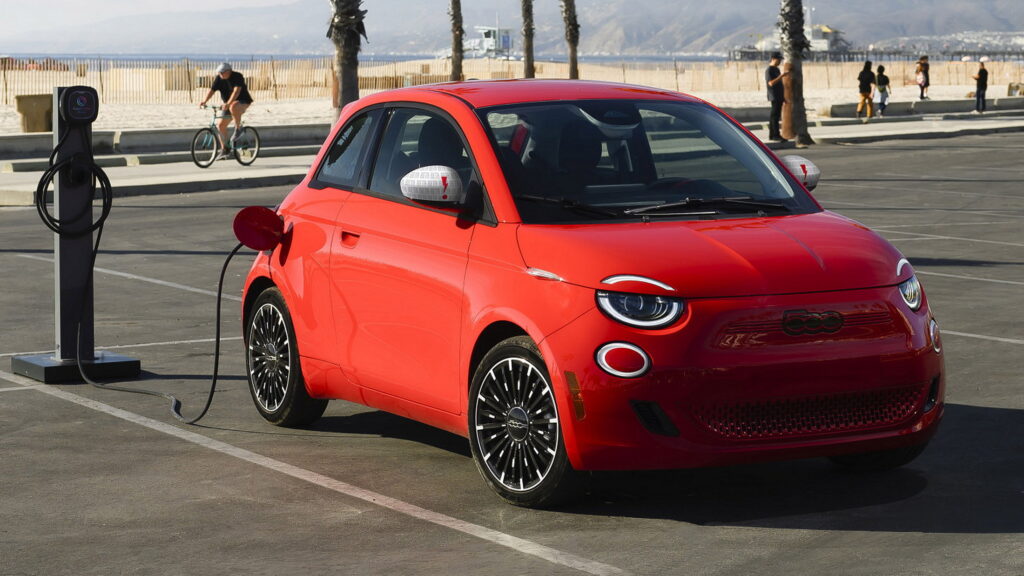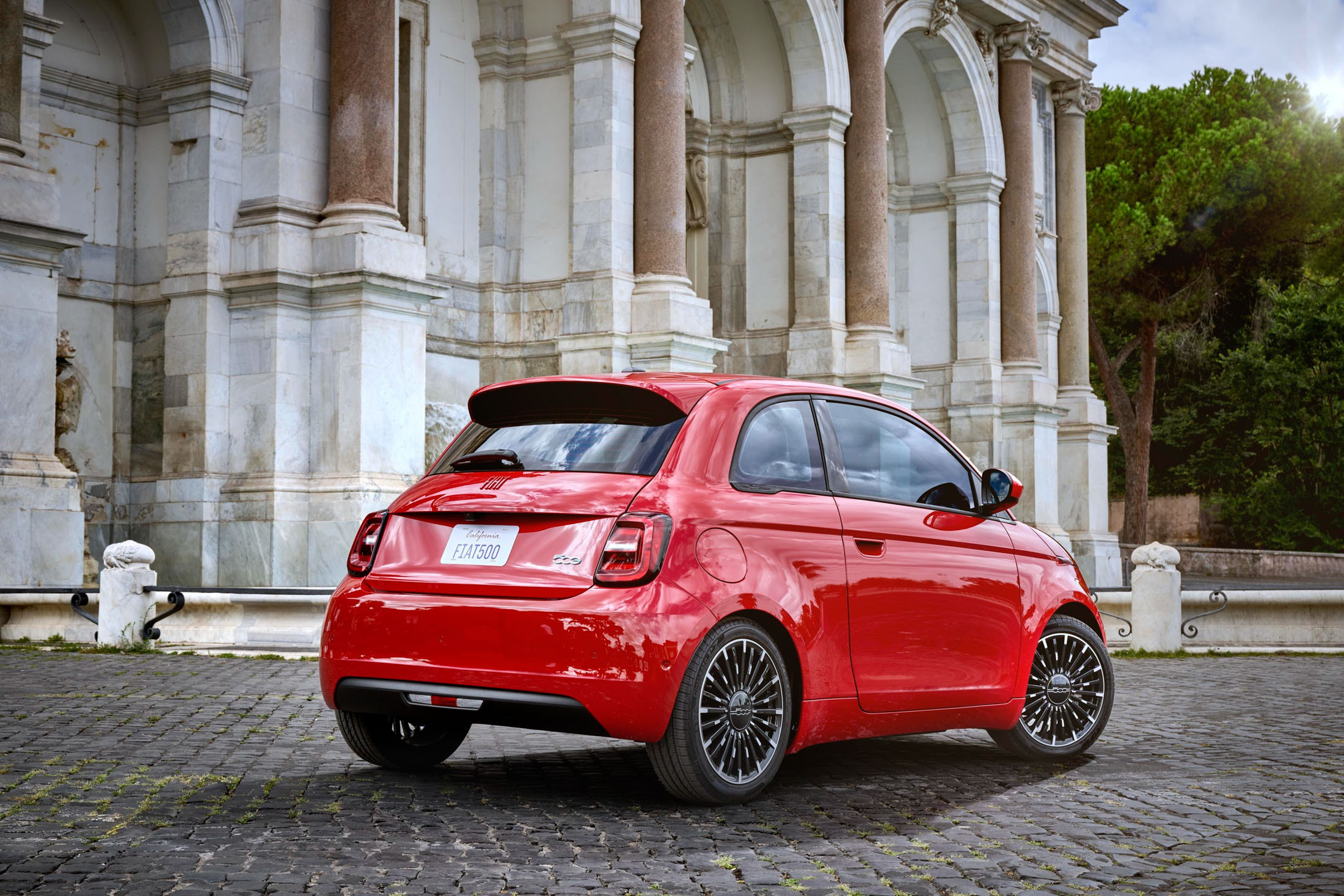- Fiat is temporarily shutting down production of the 500e due to weak demand for the EV.
- The 500e line at Stellantis’ Turin plant will be idled for four weeks starting September 13.
- Production of the old ICE 500 finished this summer because it didn’t meet cybersecurity laws.
Fiat is shutting down production of its 500e as it struggles to deal with a lack of demand for the chic electric city car.
Stellantis has confirmed that the 500e line at its Mirafiroi plant in Turin, Italy, will fall silent for four weeks starting September 13, meaning no new 500s of any type will be built in Europe for the first time since 2007.
Related: Fiat 500 Ibrida Hybrid To Be Built In Italy And On Sale By 2026
“The measure is necessary due to the current lack of orders linked to the deep difficulties experienced in the European electric market by all producers, particularly the European ones,” Stellantis said in a statement to Reuters.
The old combustion-powered, Poland-built 500, which employed a totally different Panda-based platform to the EV, went out of production in the summer because it didn’t meet new cybersecurity laws and Fiat didn’t want to spend the money to update it. Production of the ICE 500 hasn’t stopped altogether: the model is still being built in North Africa, but those versions aren’t eligible for sale in Europe.

Rather than update the elderly ICE 500 to keep it on sale, Fiat has opted to create a new hybrid model by reverse-engineering the electric 500e to accept a small combustion engine and electric motor. But that car, the 500 Ibrida, won’t be ready until the back end of 2025 or, more likely, 2026, leaving Fiat dealers’ cupboards looking conspicuously bare for the next 18 months.
The hybrid will be be built alongside the EV at the historic Mirafiori site, which is receiving a €100 million ($110 m) makeover to get it ready for Fiat’s reconfigured electrification plans.
Fiat is far from the only automaker who has been forced to modify its strategy in the face of much lower than anticipated demand for EVs. Toyota, GM, Ford and even high-end brands like Aston Martin and Mercedes are either extending the lifespan of existing combustion vehicles or spending additional money on developing new ones.














